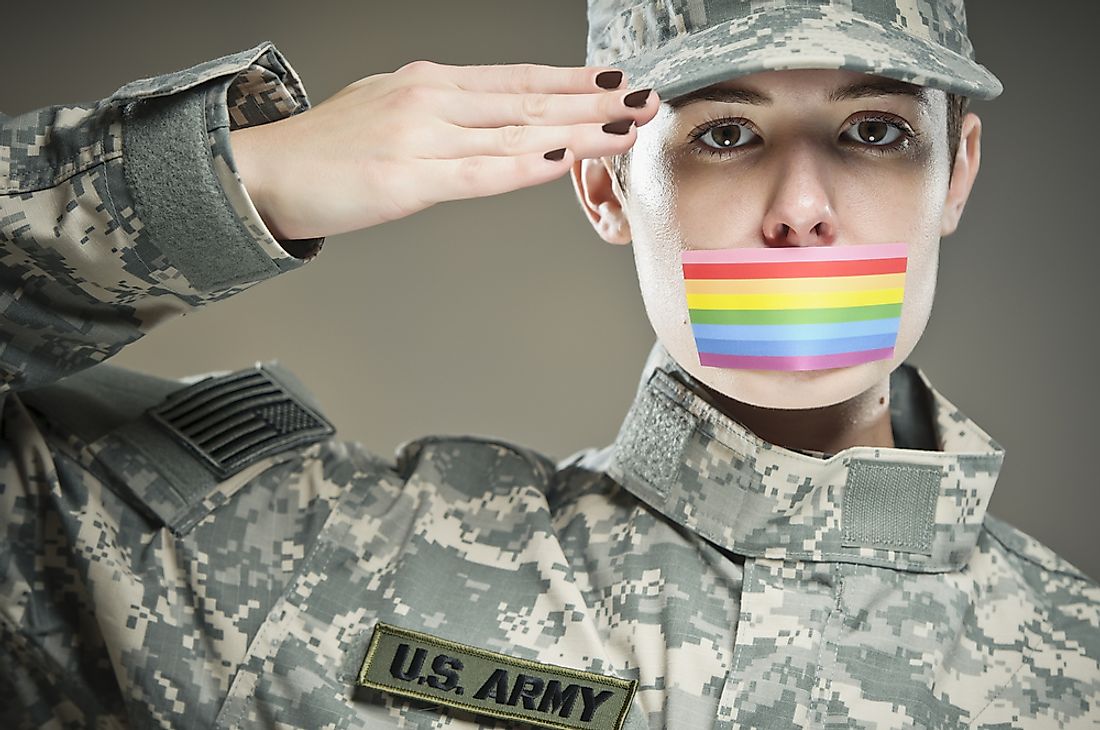What Was the "Don't Ask, Don't Tell" Policy?

The "Don’t Ask Don’t Tell" policy was the official stance of the US government on military service by homosexuals and bisexuals. Instituted by the Clinton government in February 1994, the policy illegalized military officials from discriminating against an individual's sexual orientation who were still in the closet. It also banned being open about your sexuality if not straight.
When the policy was effected in 1993, it removed the prohibition that has been put on homosexual service since World War II. December of 2010 was a big victory for the LGBT community when the House of Representatives and the Senate under President Obama’s administration revoked the policy. The repeal became law on September 20th 2011.
Background
When Clinton won the poll in 1992, he proclaimed his intention to lift the ban on homosexuals military service. He had used the promise during his election, making him very popular among the supporters of homosexual inclusion in military service. He began working on a solution soon after inauguration, a move that was met by resistance from Sam Nunn, a Democrat senator who also headed the Senate Armed Services Committee, and top military administrators.
After very vigorous deliberations, Clinton managed to push through a compromise to his initial plan. This compromise is what is referred to as “The Don’t Ask, Don’t Tell” policy, which required that homosexuals could only serve if they did not openly declare their sexual orientation. Officials of the armed forces were still opposed to the compromise, feeling that it would affect morale.
Gay rights activists were far from satisfied by the policy which forced military personal to operate in hiding. They felt like this was not total acceptance as promised.
Statistics show that the law did not help gay people serve. By 2008 when the policy marked 15 years of operation, 12,000 officers had been dismissed from the military for not hiding their sexuality.
Barack Obama promised to overturn the policy to allow gays and lesbians to serve openly.
Repeal
President Obama was slow in acting on the promise he had given. During his first year, more people were discharged for being gay or lesbian.
In February of 2010, the Pentagon announced and started a study on how repealing the DADT would affect the military. They also introduced regulations making it harder to dismiss openly gay or lesbians military members.
In May of 2010, the House of Representatives and the Senate voted to repeal the DADT policy. However, the repeal awaited a decision by the Pentagon Study, the President, the Secretary of Defence, and the Joint Chief of Staff.
The repeal of DADT faced opposition from several factions; in September of 2010 a federal judge ruled in favor of plaintiffs who claimed the repeal was unconstitutional, later in the same month, republicans also stalled the law, among others, and lastly in October an injunction by a federal judge in California. The Don’t Ask Don’t tell Policy was reinstated later in the same month.
On November 30th, 2010, the findings of the Pentagon study were released showing that repealing DADT had little or no risk to the effectiveness of the military.
Senator Susan Collins introduced a Standalone Bill to revoke the DADT. The same bill was presented to the House of Representatives, and it passed becoming law three days later. President Obama signed the bill in December of 2010 and after several certifications, it became effective on September 20, 2011.











